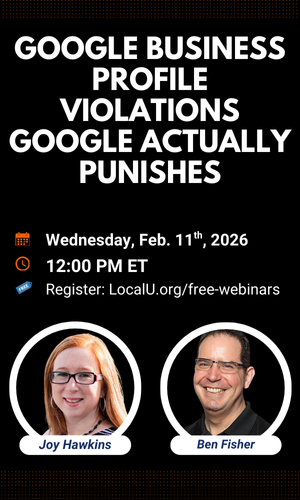djbaxter
Administrator
- Joined
- Jun 28, 2012
- Messages
- 3,778
- Solutions
- 2
- Reaction score
- 1,878
An excellent article, well worth the 5 minutes or so it will take to read it. 
4 Very Popular SEO Beliefs That Make No Sense At All
by Pratik Dholakiya, Search Engine Journal
July 11, 2018
Read more...
4 Very Popular SEO Beliefs That Make No Sense At All
by Pratik Dholakiya, Search Engine Journal
July 11, 2018
Here are four beliefs that truly are very popular in the SEO community – and are also provably and undeniably wrong.
SEO Belief 1: Correlation Studies Tell Us How the Algorithm Works
A lot of major SEO blogs publish lists of “ranking factors”:
There’s just one problem.
These aren’t lists of ranking factors.
SEO Belief 2: Guest Blogging Is Against Google’s Terms of Service
This belief is also false.
(See also this discussion on guest posting: Do local reciprocal backlinks do any good these days? | Local Search Forum)
SEO Belief 3: Social Signals Are a Ranking Factor
When RankBrain was released, there was some speculation that all of this had changed and social signals were finally being incorporated as a ranking factor.
Google’s Gary Illyes gave an emphatic “no” when asked whether social signals impacted RankBrain.
(The article also cites Matt Cutts and John Mueller denying that social signals play any role in ranking.)
SEO Belief 4: Links Are the ‘Most Important’ Ranking Factor
There is no “most important ranking factor.”
Here is Mueller saying as much:
“We use so many factors for ranking, it really depends on a lot of things. IMO there’s no “top 3” list. We use links, but also lots more.”
Read more...
Last edited:




